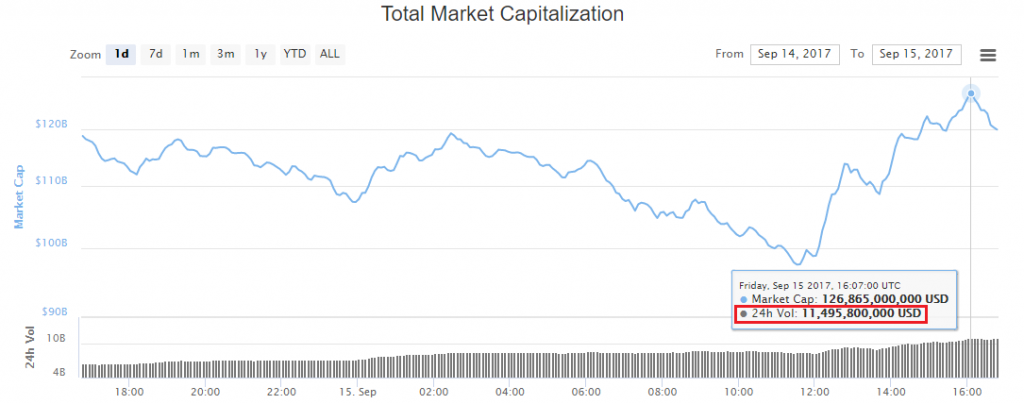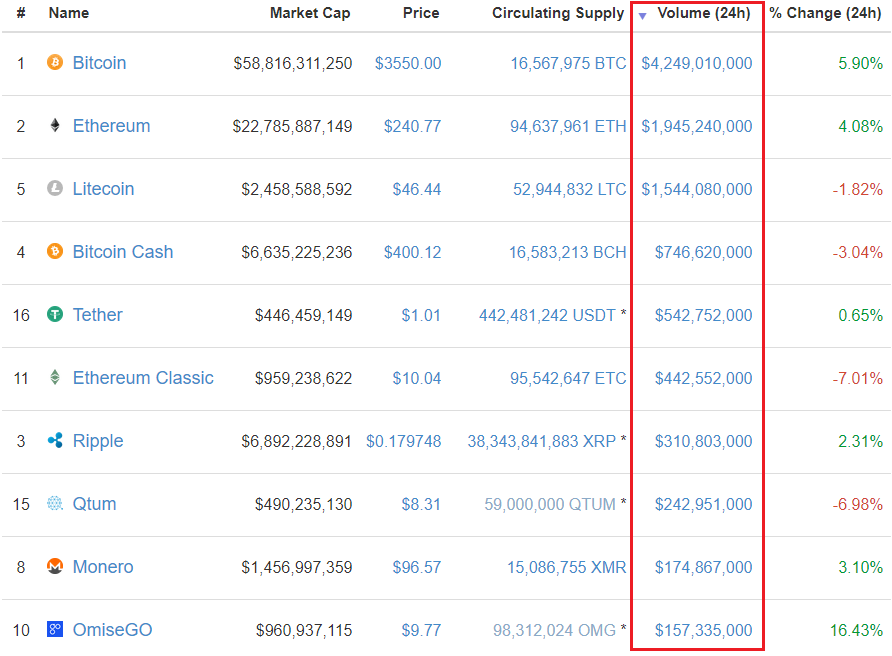Cryptocurrency Is A Bubble:
What's Next?

In my article Cryptocurrency Is A Bubble I predicted it would crash.
Well I was wrong, it crashed twice.
In part two, Cryptocurrency Is A Bubble, Revisited,
I argued you should skill up because this was the big one.
Which I’m sure many are doing right now.
Now the big question is what is going to happen next?
It is going to crash again but the trend is going to be up punctuated with gut wrenching corrections. This is only the beginning, not the end, of Bitcoin and the other 1,000 altcoins. There is only one call to make. That call is simple and was highlighted by Jamie Dimon of JPMorgan: Is cryptocurrency a fraud? JPMorgan thinks it is, and you'd think they should know, having been investigated by the likes of the FBI and fined bazzillions for such things.
However, I say no.
Clearly if you agree with Jamie Dimon and you are right that people just “can’t go around inventing their own currency,” you should just avoid the whole area. Don’t let go of that view and buy in at the top. Now that would be painful. If Dimon is right, cryptocurrencies will end badly just like many banks.
If cryptocurrencies are not frauds, they will grow. The key question, then, is what is the current market cap of all cryptocurrencies on earth now and what could it be in the future? It is currently $121 billion. (Though by the time you read this it might be a lot higher.) $121 billion is equivalent to the market cap of McDonald’s, esteemed purveyors of hamburgers.So here is the Google trends for them both–and I’ve thrown in the U.S. dollar, for fun.
Google trends for cryptocurrency versus Macdonald's and the U.S. dollarSo it looks as if Ronald, like China, needs to worry about Bitcoin becoming too important.But seriously, a financial instrument category with $121 billion float is not a material issue to the world economy.Or is it? Clearly China sees it as a looming threat. Having banned initial coin offerings (ICOs), it then banned Bitcoin exchanges, hand that triggered this crash.
I think it is very bullish that China wants to clamp down. China bans powerful ideas because it cannot stand any but its own. China just endorsed the power of cryptocurrencies so any doubts about the strength of the concept can be forgotten. If cryptocurrency is this potent, then a market cap of $121 billion is a drop in the bucket. So what should the float of a global currency platform capable of making the Chinese government skittish be?
Let’s take gold as a benchmark–after all, that is what its fans claim it is. The market cap of gold reserves is held to be $5 trillion and gold is good for nothing but dentistry, electronics and payments in times of war. So why couldn’t cryptocurrencies match it? As long as a cryptocurrency can be accessed and created then its money supply can grow to meet the needs of its user base. As Bitcoin and the likes are nowhere near the mainstream then the upside must be multiples of where it is today. That could be a striking multiplier.
So what could go wrong?
The main risk is that cryptocurrencies could be banned outright everywhere. It is an obvious thought and the one grasped at most frequently. I don’t think this will happen, as for a start, politicians don’t close their own loopholes. Furthermore, it only takes one global jurisdiction to allow cryptocurrency and the distributed nature of cryptocurrencies and the Internet leaves the door wide open for all. What is more, blockchain technology has huge potential to revolutionize economies by building a trustless infrastructure with transparency. This will disintermediate layers of inefficient gatekeepers whose rent seeking behavior gums up the economies of the world with their unnecessary tollgates.
Any economy using that technology will wield a massive economic advantage against luddites so the outcome is economically inevitable. Luddites can’t win. Have they ever? You could say cryptocurrencies are better than old style currencies and that their very nature makes them invulnerable but I feel the protection is in the pure efficiency of blockchain technologies and the giant economic advantages they will bring. Blockchain and cryptocurrencies are genies that won’t go back into their bottles and like the Internet, change everything.
Blockchain is about trustless systems. Trustless systems, of which Bitcoin is one, are the real revolution behind this surge. Trustless systems are a platform for tremendous progress. Imagine all the things in your life that would be better if you didn’t have to trust or distrust people. How many hours a week do we spend unlocking doors or substantiating facts or protecting ourselves from error and "bad actors."
Blockchain is going to be huge and it would be perverse if the thing that is driving it forwards, cryptocurrency, was somehow going to be run out of town on a rail at the same time. So while China might try and nip Bitcoin in the bud I think it is unlikely that less twitchy and less totalitarian countries will follow suit. It could happen but I believe it won’t.
So if it is not banned, what is the future?
The clamor is a clue–cryptocurrencies are creating more than $121 billion of noise, the real is trend to look at is the U.S. dollar. That is 13 trillion dollars of money talking. So if Dimon is right, Bitcoin is perhaps worth a bit more than the noise made by Big Macs, which is $23 billion dollars of happy meals, but if he’s wrong then ‘to the moon’ is certainly a possibility. How high is the moon? It is hard to judge, but I would be surprised if it was not at least 10 times as much as today. Is 100 times such a dream?
It is worth remembering that the total value of stocks on the NYSE and Nasdaq is $27 trillion. And more intriguing still, U.S. money supply is on $13 trillion. Then even more interesting still, the U.S. national debt is around $20 trillion. So there is $27 trillion of stocks, $20 trillion in bills but only £13 trillion in money.
Optically that does look right. $47 trillion in paper assets, not to mention hard assets like land, real estate etc, but only $13 trillion in money? Money starts to look like a pinch point to me. Now could that be a reason for a hunger for usable currency… could there just not be enough money about? Could the missing ingredient in the tepid world economy, which doesn’t seem to get either growth or inflation, be not enough M2 (let’s call it money)?
Could there just not be enough money to get activity going? Has it all been sumped in assets and higher technical solvency requirements? If Gresham’s law is true, and bad money drives out good, then governments better get cracking and get the money out there and save us all from stagnation and/or Bitcoin. If they don’t, then cryptocurrencies will do the trick. ICOs anyone? Bitcoin or no, it’s a new dawn and you have to be in it and it’s going to be wild.
Chuck Reynolds

Marketing Dept
Contributor
Please click either Link to Learn more about -Bitcoin.
Interested or have Questions. Call me 559-474-4614
David https://markethive.com/david-ogden













